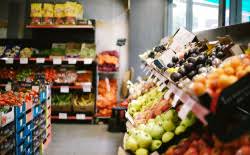One-third of household spending in Bulgaria goes to food and drinks

Sofia: About one-third of Bulgarian household spending is directed toward food and non-alcoholic beverages, according to the latest figures from the National Statistical Institute (NSI) for the second quarter of 2025. The data, which compares household budgets with the same period of 2024, highlights notable shifts in consumption patterns, with some products seeing increased demand while others declined.
The statistics show that Bulgarians consumed more vegetables, fruit, meat, and yogurt over the three-month period, but reduced their intake of cheese and oil. The sharpest growth was in vegetable consumption, which rose by an average of 800 grams per person, reaching 21 kilograms. Fruit intake also grew, up by nearly half a kilogram to almost 12.5 kilograms per person. Meat consumption increased by more than half a kilogram, while yogurt saw a similar upward trend. By contrast, cheese dropped by around 200 grams per person, as did vegetable oil.
For other staples, consumption levels remained unchanged. This was the case for meat products and potatoes, which showed no statistical difference compared to the same quarter of the previous year. The NSI emphasized that these averages reflect food and beverage consumption within households only and exclude meals eaten at restaurants, cafeterias, or other public dining places.
Looking at overall household finances, the average quarterly expenditure per person reached just over 3,150 leva in the second quarter of 2025. This marks an increase of nearly 12 percent compared with the same period of 2024. Food expenses remain the single largest category, accounting for more than 30 percent of all household outlays.
After food, the biggest portions of the budget go to mandatory payments and mobility. Taxes and social security contributions account for 16 percent of total spending, while transport and communications represent about 11 percent. A year-on-year comparison shows that food and soft drink expenses rose from 835 leva to 951 leva per person. Spending on alcohol and cigarettes also grew, moving from 109 leva to 130 leva.
Housing-related costs, including water, electricity, heating, furnishings, and maintenance, rose sharply as well. The figures show an increase from 397 leva per person in 2024 to 463 leva in 2025, underscoring the rising cost of essential household services.




